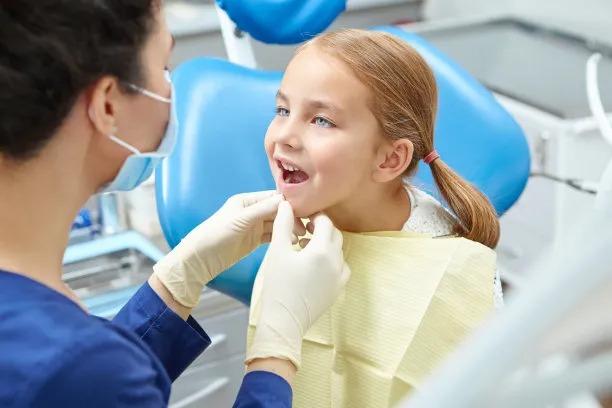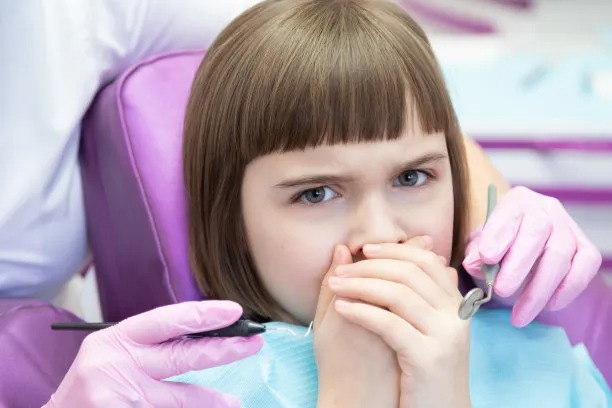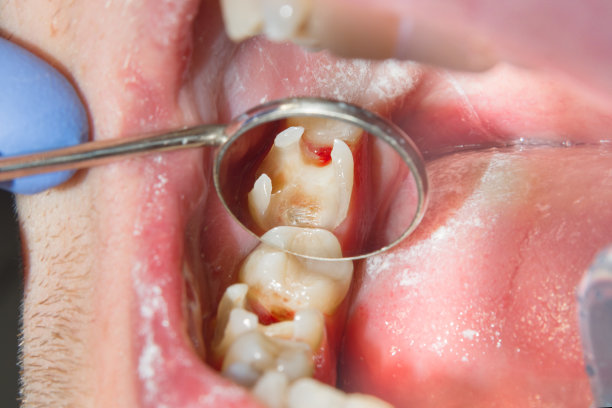Summary: Tooth extraction can be an unsettling experience, but understanding the process and the aftercare required is essential for a smooth recovery. This guide delves into the phases of tooth extraction, from preparation to what to expect in recovery. It highlights critical care tips to effectively manage discomfort and lower the risk of complications. Additionally, practical tips for maintaining oral hygiene post-extraction are vital to expedite healing. By familiarizing yourself with these aspects, you can navigate the procedure with confidence and ensure optimal recovery.
1. Understanding the Tooth Extraction Process

The process of tooth extraction typically begins with a comprehensive examination by your dentist. They will evaluate the affected tooth and surrounding area, often using X-rays to determine the tooths position and root structure. This preliminary assessment is crucial for developing a tailored extraction plan. During this phase, patients should voice their concerns and ask about any necessary steps, setting the stage for a smoother procedure.
Once the extraction plan is established, anesthesia is administered to ensure that the patient experiences minimal discomfort throughout the procedure. Depending on the complexity of the extraction, local anesthesia may suffice, or a more comprehensive sedation approach may be necessary. The dentist will explain the type of anesthesia used and what to expect, mitigating anxiety before the extraction takes place.
The actual tooth extraction involves specialized instruments to loosen the tooth and separate it from the gum and bone. For simple extractions, the procedure may take only a few minutes. However, surgical extractions, commonly for impacted teeth, can take longer and require more intricate techniques. Understanding this process helps patients mentally prepare and recognize the expertise involved.
2. Immediate Aftercare Steps Post-Extraction
Following the extraction, proper immediate aftercare is vital. The dentist will provide gauze to apply pressure to the extraction site, which helps form a blood clot. It is essential to keep the gauze in place for several hours to prevent excessive bleeding. Patients should avoid vigorous rinsing or spitting during this time, as these actions can dislodge the new clot.
Once the initial bleeding subsides, ice packs can be applied to the outside of the face to help reduce swelling. Aim to keep ice on the affected area for about 15-20 minutes at a time during the first few hours. This cooling method can alleviate discomfort and promote a faster recovery. Additionally, patients are advised to elevate their heads while resting to minimize swelling.
Diet also plays a critical role immediately after tooth extraction. Soft foods such as yogurt, mashed potatoes, and smoothies are recommended. Its important to avoid hot, spicy, or crunchy foods that might disturb the extraction site. Staying hydrated is crucial, but patients should avoid using a straw for the first few days, as sucking can disrupt the healing clot.
3. Managing Pain and Discomfort Effectively
Post-extraction discomfort is common, and patients may experience varying levels of pain. Over-the-counter pain relievers like ibuprofen or acetaminophen are typically effective for managing mild to moderate pain. However, your dentist may prescribe stronger medication if necessary. Patients should adhere to the prescribed dosage and consult their dentist if they encounter any severe or persistent pain.
Its also beneficial to follow comfort techniques alongside medication. Gentle mouth rinses with warm salt water can help equally soothe the extraction site and promote healing. Performing this rinse only after the first 24 hours, when the initial healing has occurred, can be particularly effective in reducing discomfort.
Its crucial to keep an eye out for signs of complications, such as prolonged bleeding, severe pain, or signs of infection like excessive swelling and fever. Should these symptoms arise, promptly reaching out to a healthcare provider is essential. Early intervention can mitigate further complications, ensuring a smoother recovery.
4. Long-term Care for Enhanced Healing
As recovery progresses, maintaining oral hygiene becomes increasingly important. After the initial healing period of a few days, patients can start gently brushing their teeth, ensuring to avoid the extraction site. Using an antibacterial mouthwash can help prevent infection while promoting oral health and protecting the site.
Regular follow-ups with the dentist are crucial to monitor the healing process. These visits allow for professional assessments and timely adjustments to oral care routines as necessary. Your dentist may provide individualized care tips based on recoverys progress, ensuring optimal outcomes.
Incorporating a healthy diet rich in vitamins and minerals can further enhance recovery. Foods high in vitamin C and calcium can promote tissue repair and strengthen the immune system. Staying hydrated is essential throughout the healing phase, aiding bodily functions and recovery efforts.
Summary:
In conclusion, understanding the tooth extraction process and adhering to the necessary care guidelines plays a vital role in ensuring a positive recovery experience. From pre-extraction preparations to ongoing care, following these established principles can significantly enhance patient comfort and recovery outcomes. Preparation and knowledge lead to confidence and ease during the recovery phase.
This article is compiled by Vickong Dental and the content is for reference only.
Vickong Dental
Vickong Dental is a large medical group established in Hong Kong in 2008 by professors from well-known medical universities in Guangdong and Hong Kong, as well as medical doctors from key national '985' universities (including Master's supervisors and senior professors). The chain of branches brings together expert dentists with PhDs and Master's degrees from Hong Kong and Mainland China, committed to providing high-quality dental treatment.
"Vickong Dental Practices the University Motto of 'Healing and Serving Society,' with a Stable Operation for Sixteen Years. It Has Been honored with Hong Kong Enterprise Leaders's Choice,' and is a Global Trusted Implant Center for the Nobel Implant System. Recommended by Hong Kong Metro Broadcast and Guangdong Television, it Serves Customers from Over Thirty Countries and Regions, Gaining the Trust and Favor of Citizens from the Guangdong-Hong Kong-Macau Greater Bay Area and Surrounding Cities.

Thousands of customers' unanimous praise
The most recognized and highly recommended dental service by customers in the Guangdong-Hong Kong-Macau Greater Bay Area
We Ensure You Receive Detailed Care and Attention Here
Hong Kong standards, Shenzhen prices, Your Trusted English-speaking dentists

Vickong Dental Medical-Grade Instrument Disinfection Process
Vickong Dental Medical-Grade Instrument Disinfection Process

Vickong Dental Chain: A Warm and Comfortable Environment for Treatment






Appointment Hours

Q&A
Why choose Vickong Dental?
Vickong Dental practices the university motto 「Medicine to Benefit Society」, with each branch bringing together highly qualified dentists with doctoral and master’s degrees from Hong Kong and the Mainland, and has maintained seventeen years of steady operation。Recipient of 「2024 Hong Kong Enterprise Leaders Brand」, 「2025 Hong Kong Enterprise Leaders Brand」, a Nobel Biocare Global Trusted Implant Center, and a brand recommended by Metro Radio Hong Kong and Guangdong TV。
To date, we have served customers from more than thirty countries and regions,earning exceptionally high word-of-mouth recognition and trusted recommendations from residents across the Guangdong-Hong Kong-Macao Greater Bay Area and surrounding cities
We have eight major branches in Zhuhai、Shenzhen,and a consultation and service assurance center in Hong Kong,so you can book a free consultation at any time for any questions,which is very reassuring.
If I do not accept the quotation after the CT scan, will I be charged??
No! As long as the actual treatment has not started, you will not be charged any fees.
Will there be any additional charges during the treatment process?
No, there won’t be any additional charges. Before treatment begins, we will clearly explain the treatment plan and its corresponding fees. Only after the patient agrees and signs the consent form will we proceed with the dental service.
Can I pay in Hong Kong dollars?
Yes. Vickong Dental accepts payment in Hong Kong dollars. The amount will be converted based on the exchange rate of the day, and the applicable rate will be clearly communicated to you in advance.
Can I reschedule my appointment at any time?
Yes. Please contact us via **WeChat** or **WhatsApp** as early as possible, providing your original appointment time and details, along with your preferred new date and time slot for rescheduling.













